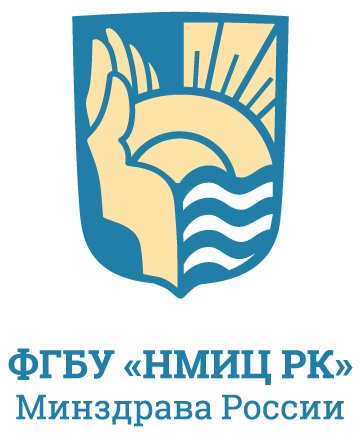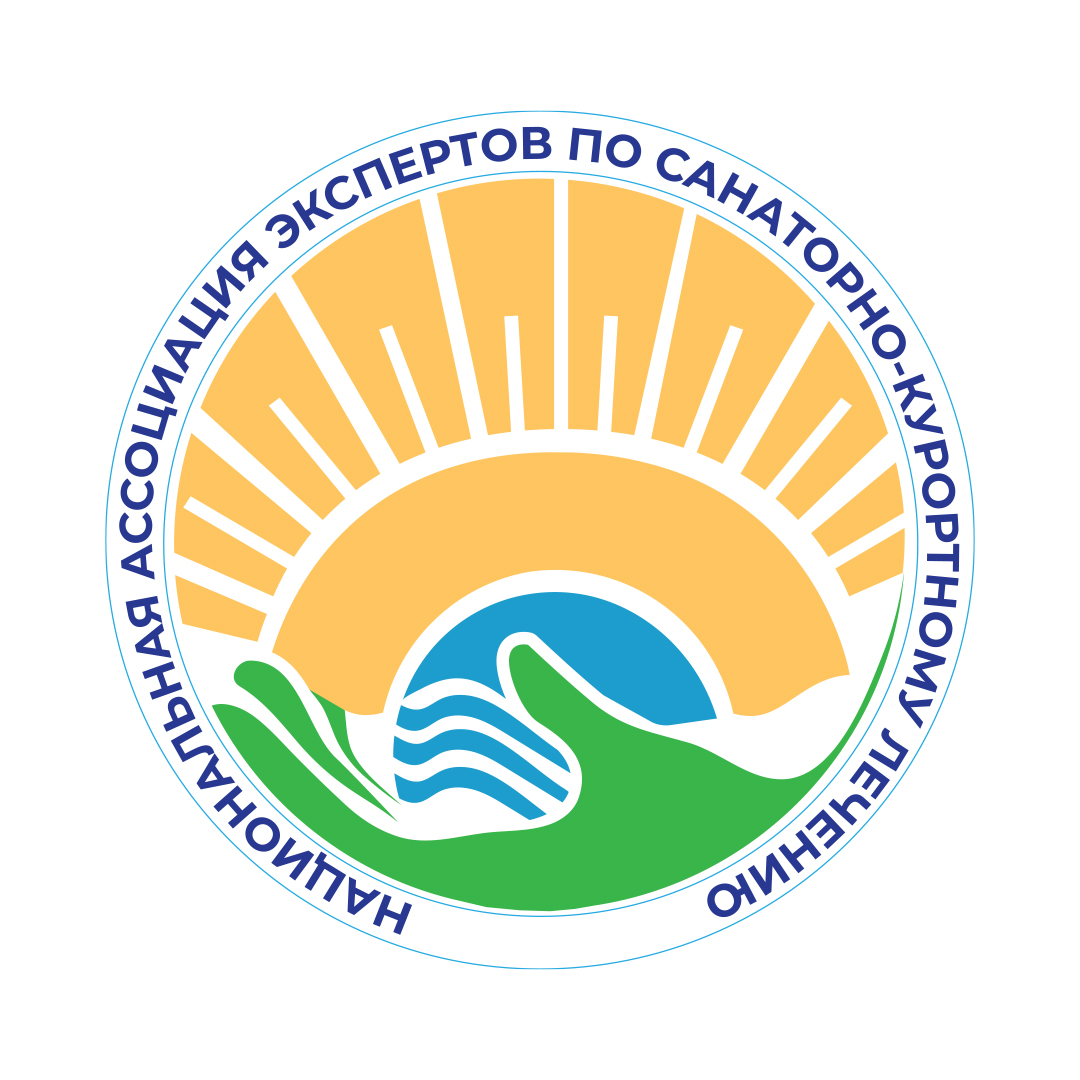Issue 3-21, 2022
Review article
Remote Monitoring of Cardiovascular Risks of Medical Rehabilitation of Ischemic Stroke Patients Using Information and Telecommunication Systems
1,2 ![]() Elena V. Kostenko, 1
Elena V. Kostenko, 1 ![]() Lyudmila V. Petrova, 1
Lyudmila V. Petrova, 1 ![]() Natalia V. Neprintseva, 1
Natalia V. Neprintseva, 1 ![]() Svetlana T. Shurupova, 1
Svetlana T. Shurupova, 1 ![]() Alla V. Kucherova
Alla V. Kucherova
1 Moscow Scientific and Practical Centre of Medical Rehabilitation, Restorative and Sports Medicine, Moscow, Russian Federation
2 Pirogov Russian National Research Medical University, Moscow, Russian Federation
ABSTRACT
Due to the high incidence of cerebral stroke, the relevance of the problem of medical rehabilitation for this category of patientsis beyond doubt. The increase in disability rates due to movement disorders among stroke survivors (3.2 per 100,000 population)necessitates the introduction of innovative rehabilitation technologies. Patients with cerebral stroke have a high risk of cardiocerebralcomplications, which should not limit the possibilities of medical rehabilitation. Therefore, the control of possible MR-risks is animportant organizational aspect and can be implemented through the introduction of information and communication (ICT) andtelemedicine technologies. Conducting dynamic telemetric ECG monitoring during of medical rehabilitation allows to prevent thedevelopment of possible cardiovascular risks and personalize the medical rehabilitation program.Aim. To study the effectiveness of remote tele-ECG monitoring based on information and communication technologies for assessingthe cardiovascular risks of medical rehabilitation in patients with ischemic stroke.Material and methods. The study included 83 patients with ischemic stroke, mean age 55 [51; 57]), women – 44.6%, men – 55.4%; 42patients in the early and 41 patients in the late recovery periods of ischemic stroke. All patients underwent a complex of multimodalrehabilitation techniques to restore hand dysfunction and statolocomotor disorders, carried out sequentially during one visit. For thepurpose of dynamic control of probable cardiovascular risks, objectification of the state of the cardiovascular system, correction of theintensity and duration of rehabilitation loads, a portable information and communication technologies-based telecardiac complexwas used for ECG registration. The ECG parameters were assessed in real time, as well as the stored data on the CardioOblako service.Results and discussion. The spectrum of ECG changes in patients in the early and late recovery periods of ischemic stroke was revealed.The dependence of ECG indexes and their dynamics on the duration of ischemic stroke and its subtype was determined. Asymptomaticchanges in the form of heart rhythm disorders (14,4% – supraventricular rhythm disorders, 9,6% – ventricular extrasystoles of the 1stclass), as well as repolarization processes (9,6% of cases) were registered during the course of rehabilitation measures. When discussingthe results obtained, the probable neurogenic character of cardiac rhythm and conduction disturbances as a consequence of centralneurogenic cardiovascular regulation, which is stabilized by central nervous system neuroplasticity over time, is emphasized. At thesame time, the literature indicates that these processes can be regulated by therapeutic and rehabilitative measures. In our study,correction of the intensity and duration of rehabilitation loads normalized the changes of ECG indices registered in the process ofmedical rehabilitation.Conclusion. We determined the need for a comprehensive cardiovascular risk assessment program for patients with IS with theparticipation of a therapist/cardiologist using dynamic telemetric ECG monitoring during of medical rehabilitation for the timelydetection and prevention of cardiovascular complications of medical rehabilitation, personalization of the medical rehabilitationprogram.
KEYWORDS: medical rehabilitation, cardiocerebral risks, tele-ECG, ischemic stroke, remote monitoring, information and communication technologies
FOR CITATION: Kostenko E.V., Petrova L.V., Neprintseva N.V., Shurupova S.T., Kucherova A.V. Remote Monitoring of Cardiovascular Risks of Medical Rehabilitation of Ischemic Stroke Patients Using Information and Telecommunication Systems. Bulletin of Rehabilitation Medicine. 2022; 21 (3): 58-71. https://doi.org/10.38025/2078-1962-2022-21-3-58-71
References:
- Minina Y.D., Zakharov A.V., Poverennova I.E., Androfagina O.V. Study of the effectiveness of neuroprotective therapy in restoring motor function in patients during the acute period of ischemic stroke. Zhurnal Nevrologii i Psikhiatrii imeni S.S. Korsakova. 2021; 121(9): 44-50. https://doi.org/10.17116/jnevro202112109144
- Federal project «Fight against cardiovascular diseases». 2019. Available at: https://minzdrav.gov.ru/poleznye-resursy/natsproektzdravoohranenie/bssz (accessed 01.06.2022) (In Russ.).
- Clinical guidelines for the management of patients with ischemic stroke and transient ischemic attacks. M. 2022. Available at: https://evidence-neurology.ru/content/downloadfiles/13/kr-po-ii-i-tia_2022_finalnii-v_ru_1650370148.pdf (accessed 01.06.2022) (In Russ.).
- Akzhigitov R.G., Alekyan B.G., Alferova V.V., Belkin A.A., Belyaeva I.A., Boitsov S.A., Voznyuk I.A., Vinogradov O.I., Gerasimenko M.Yu., Geraskina L.A., Geht A.B., Gusev E.I. Clinical recommendations. Ischemic stroke and transient ischemic attack in adults. Available at: https://cr.minzdrav.gov.ru/schema/171_2 (accessed 01.06.2022) (In Russ.).
- Winstein C.J., Stein J., Arena R. et al. Guidelines for Adult Stroke Rehabilitation and Recovery: A Guideline for Healthcare Professionals from the American Heart Association. Stroke. 2016; 47(6): e98-e169. https://doi.org/10.1161/STR.0000000000000098
- Cristian A., Green J. Patient safety and quality improvement in rehabilitation medicine. Physical Medicine and Rehabilitation Clinics. 2012; 23(2): 221- 230. https://doi.org/10.1016/j.pmr.2012.02.001
- Sidyakina I.V., Voronova M.V. Individualized approach to rehabilitation of patients with central dysphagia. Physiotherapy, Balneology and Rehabilitation. 2016; 15(3): 137-141 (In Russ.).
- Fonyakin A.V., Geraskina L.A., Shandalin V.A. Cardiac complications in the long-term post-stroke period and heart rate variability. Klinicheskaya Meditsina. 2012; (6): 35-38 (In Russ.).
- Pendlebury S.T., Rothwell P.M. Prevalence, incidence, and factors associated with pre-stroke and post-stroke dementia: a systematic review and meta-analysis. The Lancet Neurology. 2009; 8(11): 1006-1018. https://doi.org/10.1016/S1474-4422(09)70236-4
- Basentsova N.Yu., Shishkin A.N., Tibekina L.M. Cerebrocardial syndrome and its features in patients with acute cerebrovascular accident. Vestnik of Saint Petersburg University. Medicine. 2017; 12(1): 31-47. https://doi.org/10.21638/11701/spbu11.2017.103 (In Russ.).
- Tishkov Yu.N. Srochnyy Urgent ECG control in the training process of figure skaters. Bulletin of Krasnoyarsk State Pedagogical University named after V.P. Astafyev. 2013; 1(23): 1280-132 (In Russ.).
- O’Connor A.M., Bennett C., Stacey D. et al. Do patient decision aids meet effectiveness criteria of the international patient decision aid standards collaboration? A systematic review and meta-analysis. Medical Decision Making. 2007; 27(5): 554-574. https://doi.org/10.1177/0272989X07307319.
- Lemeshko, V.A., Teptsova T.S. Telemedicine: healthcare takes a step into the future. Medical Technologies. Assessment and Choice. 2017; 4(30): 30-38 (In Russ.).
- Atkov O.Yu., Kudryashov Yu.Yu. Personal telemedicine. Telemedicine and Information Technology. Moscow. Praktika. 2015: 248 p. (In Russ.).
- Smyshlyaev A.V., Melnikov Yu.Yu., Shahabov I.V. Telemedicine technologies as a tool to increase the availability of medical care for the population at the present stage: key problems and development prospects. Glavvrach. 2020; (5): 44-54. https://doi.org/10.33920/med-03-2005-05 (In Russ.).
- Fedorov V.F., Stolyar V.L. Telemeditsina. Telemedicine. Prospects for implementation. Vrač i Informacionnye Tehnologii. 2020; (2): 36-44. https://doi.org/10.37690/1811-0193-2020-2-36-44.
- Thamman R., Janardhanan R. Cardiac rehabilitation using telemedicine: the need for tele cardiac rehabilitation. Reviews in Cardiovascular Medicine. 2020; 21(4): 497-500. https://doi.org/10.31083/j.rcm.2020.04.201
- Piotrowicz E., Zieliński T., Bodalski R. et al. Home-based telemonitored Nordic walking training is well accepted, safe, effective and has high adherence among heart failure patients, including those with cardiovascular implantable electronic devices: a randomised controlled study. European Journal of Preventive Cardiology. 2015; 22(11): 1368-1377. https://doi.org/10.1177/2047487314551537
- Vladzimirsky A.V., Lebedev G.S. Telemedicine. Moscow. 2018: 576 p. Available at: https://www.rosmedlib.ru/book/ISBN9785970441954.html (accessed 01.06.2022) (In Russ.).
- Tolkacheva I.A. Tele-ECG: the experience of using radio monitoring of ECG in a multidisciplinary hospital. Doctor.ru. 2012; 10(78): 29-35 (In Russ.).
- Linder S.M., Rosenfeldt R.C., Bay S.M., Sahu K., Wolf S.L. Improving Quality of Life and Depression After Stroke Through Telerehabilitation. The American Journal of Occupational Therapy. 2015; 69(2): 6902290020p1-6902290020p10. https://doi.org/10.5014/ajot.2015.014498
- Baranovskaya E.N., Bronnikov V.A., Buylova T.V., Daminov V.D., Kizeev M.V., Koneva E.S., Lyadov K.V., Timashkova G.V., Chaplygina Yu.A., Shakhnovich V.A. Remote-controlled rehabilitation (complex medical rehabilitation with the use of telemedicine technology) for patients with spastic hemiparesis after acute cerebrovascular accident or traumatic brain injury (TBI). Clinical recommendations. Moscow. 2019: 66 p. (In Russ.).
- Snopkov P.S., Lyadov K.V., Shapovalenko T.V., Sidyakina I.V. Remote rehabilitation: origins, state, prospects. Russian Journal of Physiotherapy, Balneol- ogy and Rehabilitation. 2016; 15(3): 141-145. https://doi.org/10.18821/16813456-2016-15-3-141-145
- Veyna A.M. Vegetative disorders: clinic, diagnosis, treatment. Moscow. 2003: 752 p. (In Russ.).
- Adams H.P. Jr., Bendixen B.H., Kappelle L.J. et al. Classification of subtype of acute ischemic stroke. Definitions for use in a multicenter clinical trial. TOAST. Trial of Org 10172 in Acute Stroke Treatment. Stroke. 1993; 24(1): 35-41. https://doi.org/10.1161/01.str.24.1.35
- Dubenko O.E., Rakova I.A. Stroke and cardiac dysfunction. Meditsina Neotlozhnykh Sostoyaniy. 2011; 1-2(32-33): 124-132 (In Russ.).
- Camm A.J., Kirchhof P., Gregory Y.H. Lip, Schotten U., Savelieva I., Ernst S. et al. Guidelines for the management of atrial fibrillation: the Task Force for the Management of Atrial Fibrillation of the European Society of Cardiology (ESC). European Heart Journal. 2010; 31(19): 2369-2429. https://doi.org/10.1093/eurheartj/ehq278
- Karvonen M.J., Kentala E., Mustala O. The effects of training on heart rate; a longitudinal study. Annales Medicinae Experimentalis Et Biologiae Fen- niae. 1957; 35(3): 307-315.
- Tibekina L.M. Cardiac arrhythmias in patients with ischemic stroke. Vestnik of Saint Petersburg University. 2015; (4): 86-98 (In Russ.).
- Bokeria L.A., Golukhova E.Z., Adamyan M.G. Clinical and functional features of ventricular arrhythmias in patients with coronary heart disease. Cardiologia. 1998; (10): 17-24 (In Russ.).
- Tsioufis C. Ischemic stroke in atrial fibrillation patients: don’t put the blame always on heart. Hellenic Journal of Cardiology. 2020; 61(3): 208-209. https://doi.org/10.1016/j.hjc.2018.07.003
- Morozov V.V., Seryapina Yu.V., Kravchenko Yu.L., Tarkov S.M., Bessmeltsev V.P., Katasonov D.N. Telemedicine in cardiology: new perspectives. Fundamental’nyye Issledovaniya. 2013; 7(3): 589-93 (In Russ.).
- Varma N., Cygankiewicz I., Turakhia M.P. et al. 2021 ISHNE/HRS/EHRA/APHRS Expert Collaborative Statement on Health in Arrhythmia Management: Digital Medical Tools for Heart Rhythm Professionals: From the International Society for Holter and Noninvasive Electrocardiology/Heart Rhythm Society/European Heart Rhythm Association/Asia-Pacific Heart Rhythm Society. Circulation Arrhythmia and Electrophysiology. 2021; 14(2): e009204 p. https://doi.org/10.1161/CIRCEP.120.009204
- Khat’kova S.E., Kostenko E.V., Akulov M.A., Diagileva V.P., Nikolaev E.A., Orlova A.S. Modern aspects of the pathophysiology of walking disorders and their rehabilitation in post-stroke patients. Zhurnal Nevrologii i Psikhiatrii imeni S.S. Korsakova. 2019; 119(12-2): 43-50. https://doi.org/10.17116/jnevro201911912243 (In Russ.).
- Kotov S.V., Isakova E.V., Slyun’kova E.V. Usage of brain - computer interface+exoskeleton technology as a part of complex multimodal stimulation in the rehabilitation of patients with stroke. Zhurnal Nevrologii i Psikhiatrii imeni S.S. Korsakova. 2019; 119(12-2): 37-42. https://doi.org/10.17116/jnevro201911912237 (In Russ.).
- Kotov S.V., Isakova E.V., Zaitseva E.V., Egorova Yu.V. Multimodal stimulation in the neurorehabilitation of patients with poststroke cognitive impair- ment. Zhurnal Nevrologii i Psikhiatrii imeni S.S. Korsakova. 2020; 120(5): 125-130. https://doi.org/10.17116/jnevro2020120051125 (In Russ.).
- Haeusler K.G., Kirchhof P., Kunze C. et al. Systematic monitoring for detection of atrial fibrillation in patients with acute ischaemic stroke (MonDAFIS): a randomised, open-label, multicentre study. The Lancet Neurolоgy. 2021; 20(6): 426-436. https://doi.org/10.1016/S1474-4422(21)00067-3
- Baturova M.A. Atrial fibrillation in patients with ischemic stroke. Journal of Arrhythmology. 2014; (76): 51-56 (In Russ.).
- Hirota N., Suzuki S., Arita T. et al. Left atrial dimension and ischemic stroke in patients with and without atrial fibrillation. Heart and Vessels. 2021; 36(12): 1861-1869. https://doi.org/10.1007/s00380-021-01879-y
- Singer D.E., Ziegler P.D., Koehler J.L., Sarkar S., Passman R.S. Temporal Association Between Episodes of Atrial Fibrillation and Risk of Ischemic Stroke. JAMA Cardiology. 2021; 6(12): 1364-1369. https://doi.org/10.1001/jamacardio.2021.3702
- Duica L., Antonescu E., Totan M., Pirlog M., Silisteanu S.C. Contribution of mechanical and electrical cardiovascular factors in patients with ischemic stroke. Pakistan Journal of Pharmaceutical Sciences. 2020; 33(5): 2455-2460.

The content is available under the Creative Commons Attribution 4.0 License.
©
This is an open article under the CC BY 4.0 license. Published by the National Medical Research Center for Rehabilitation and Balneology.




